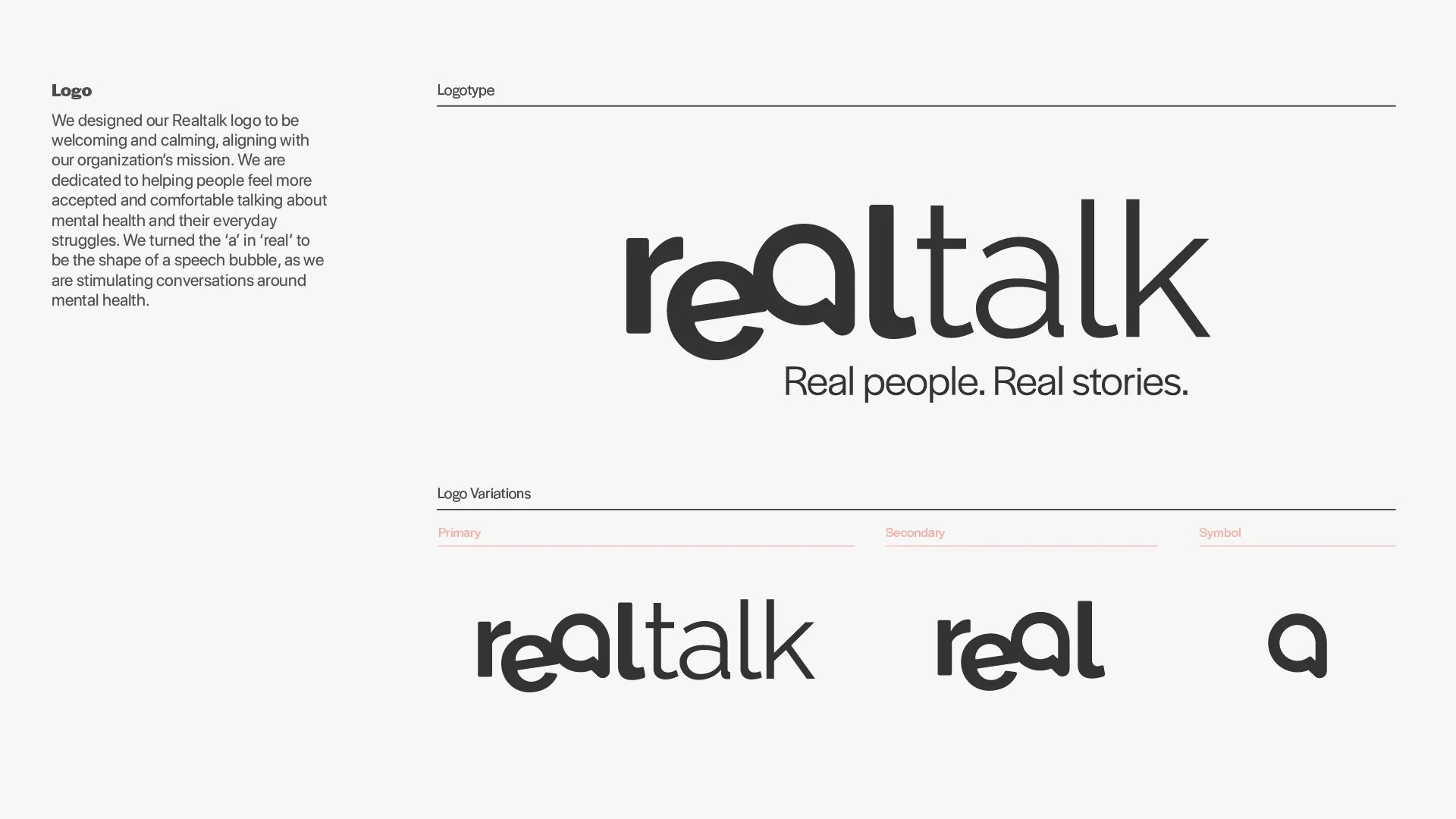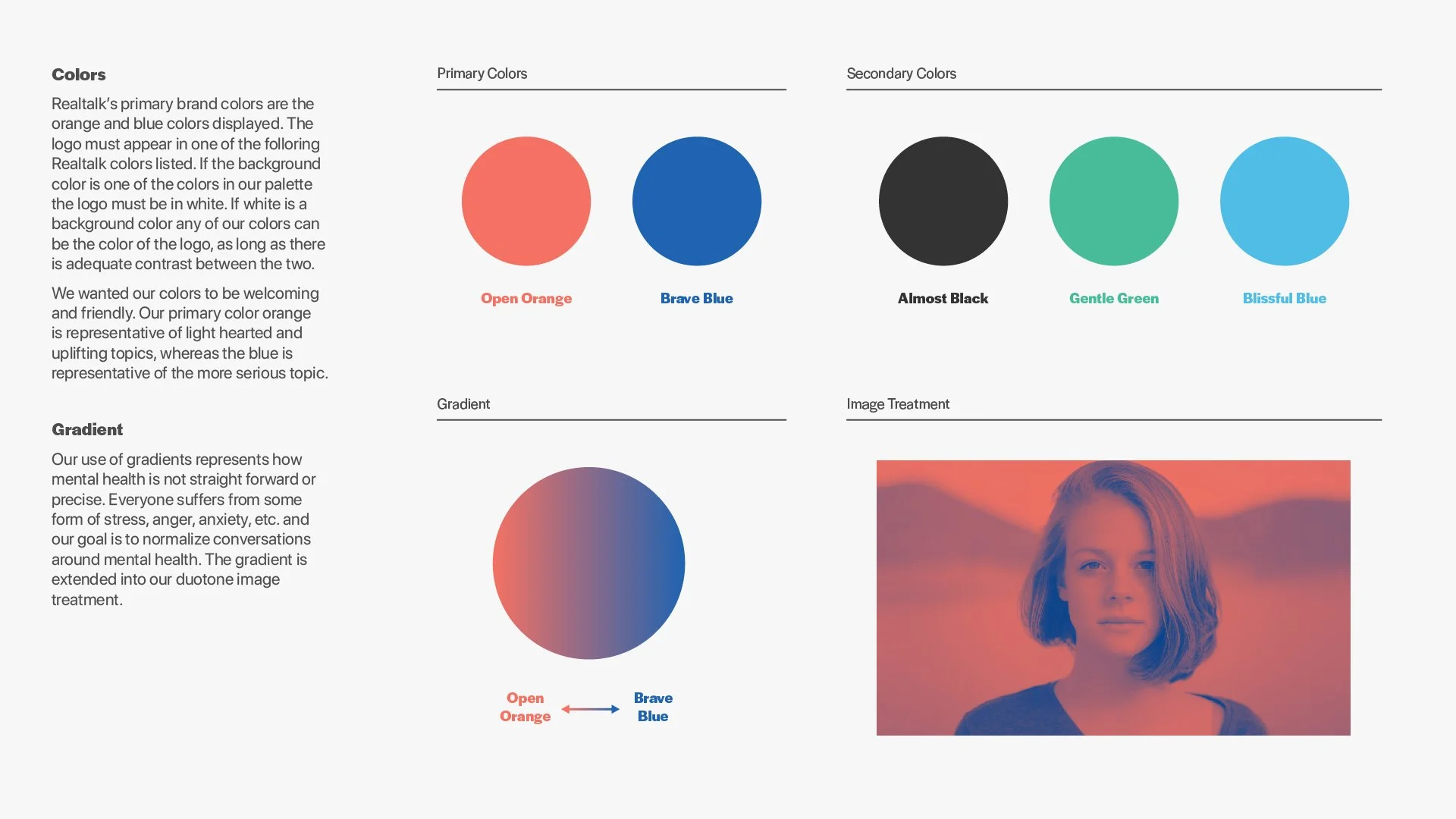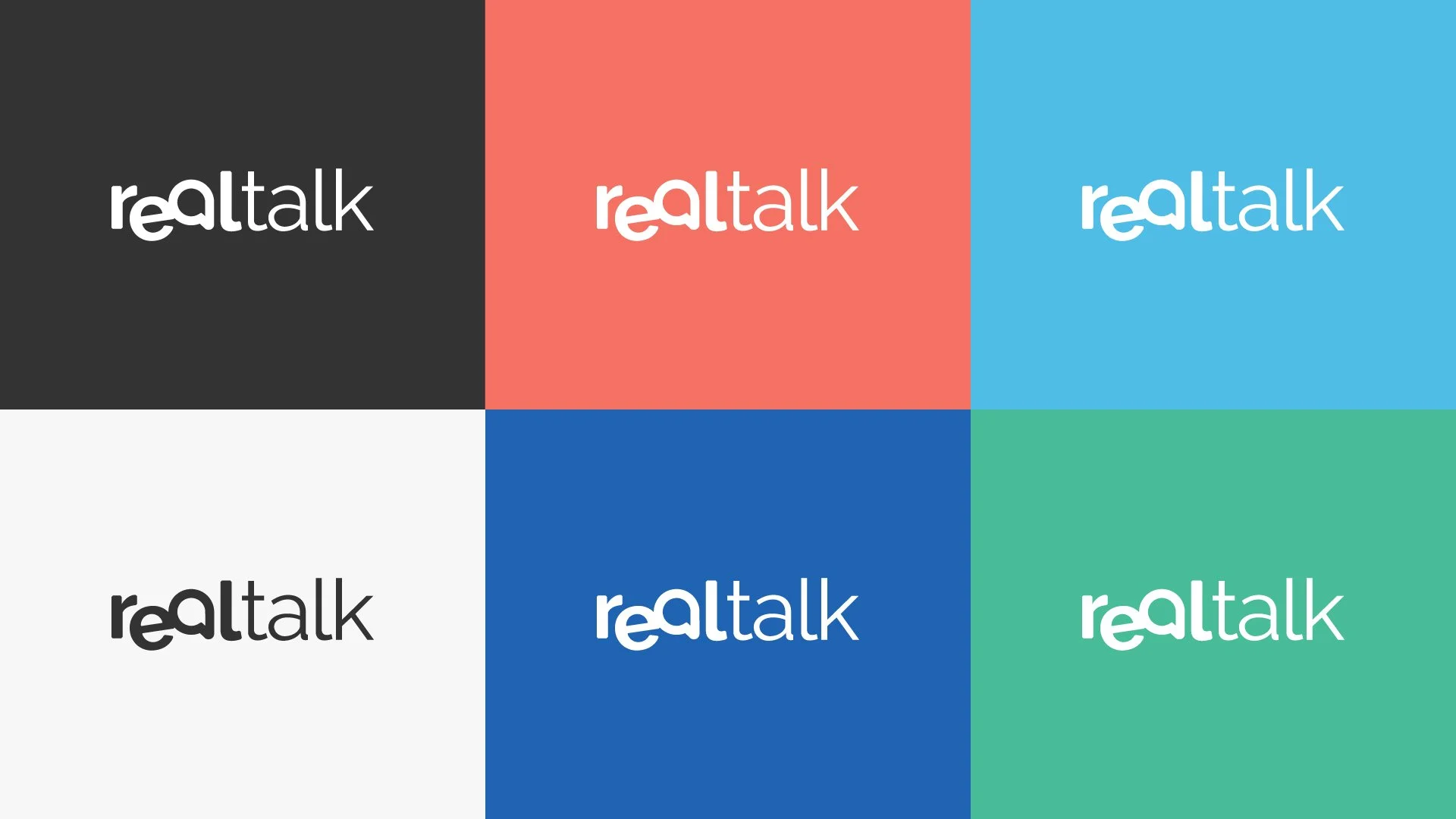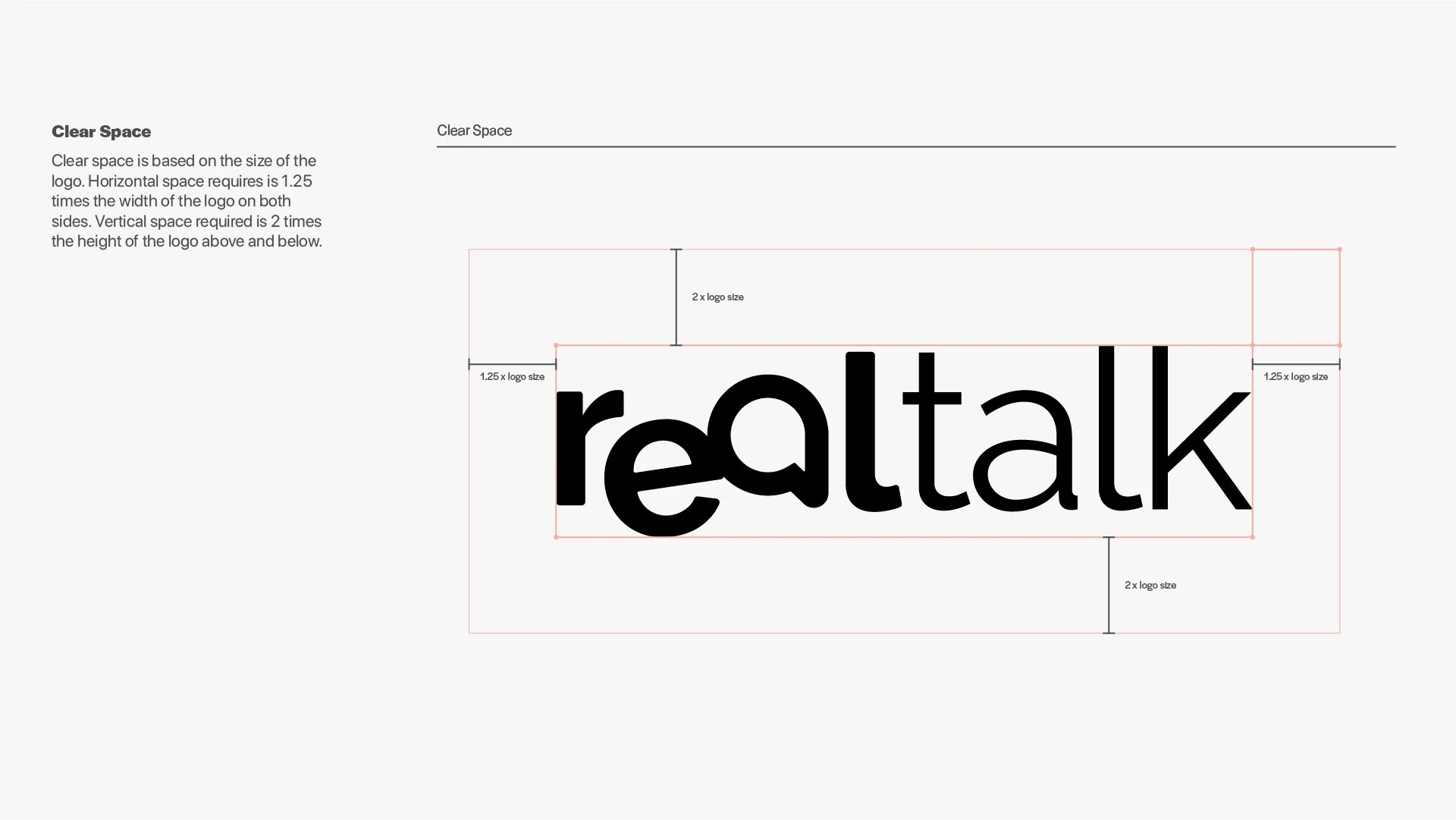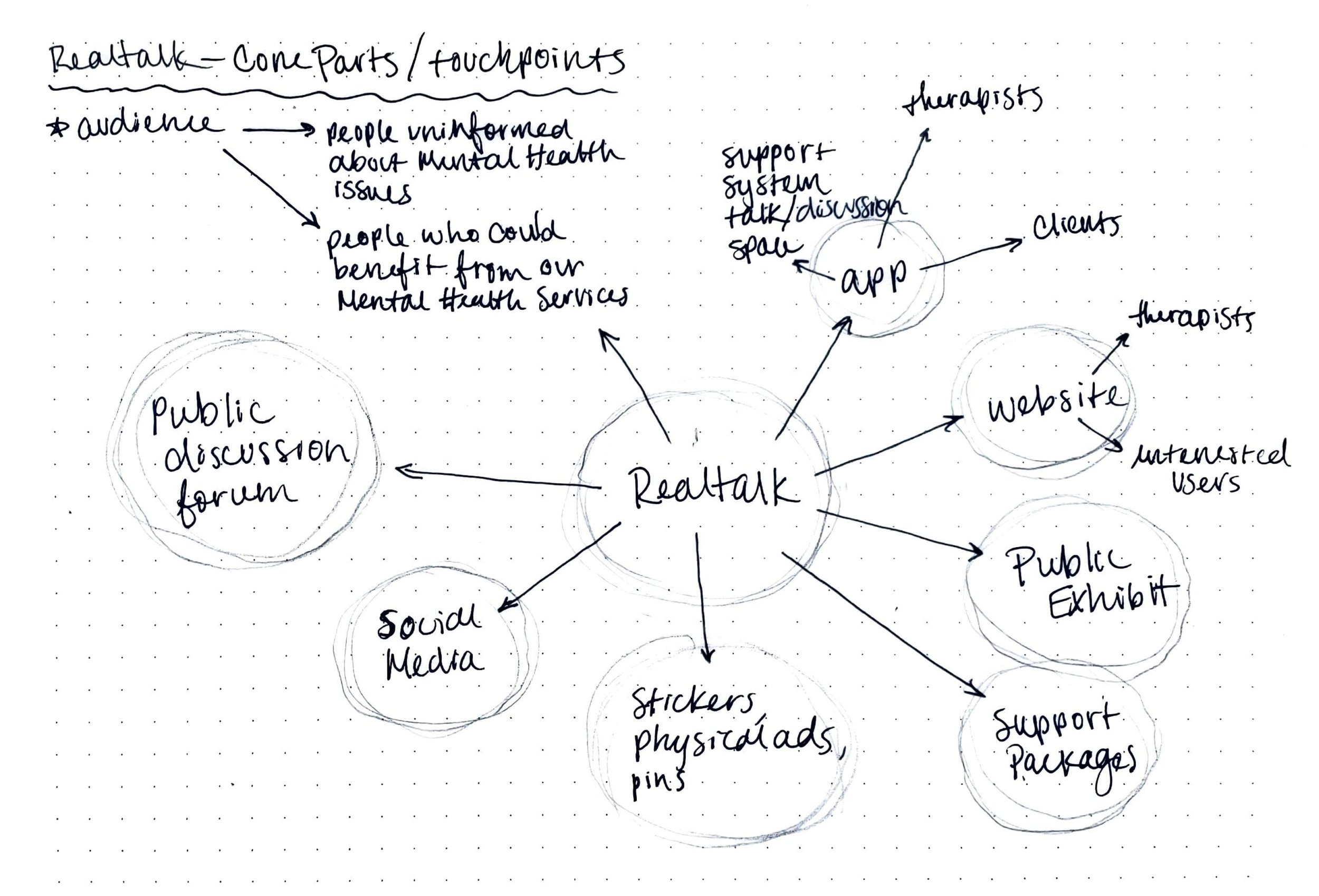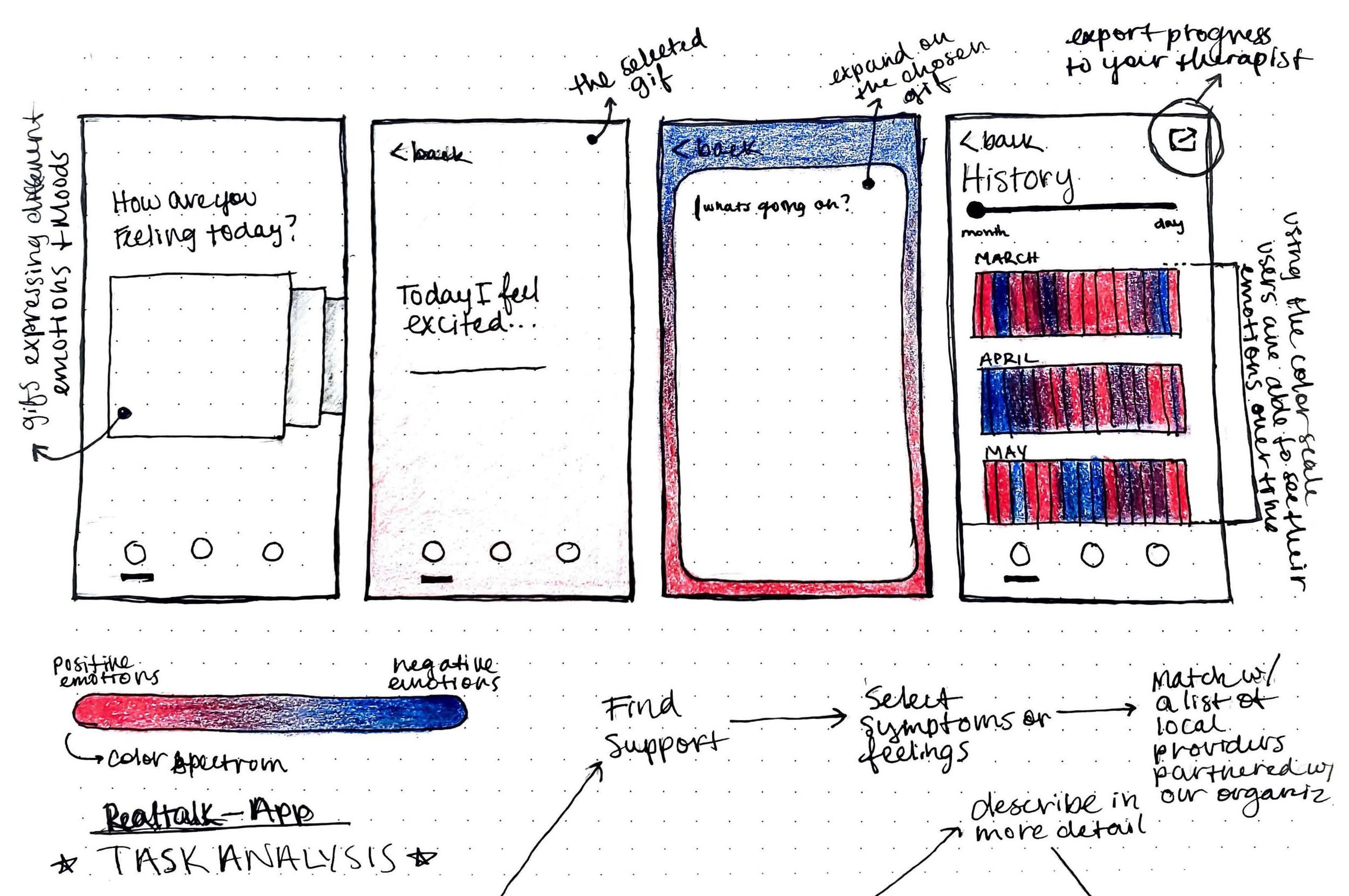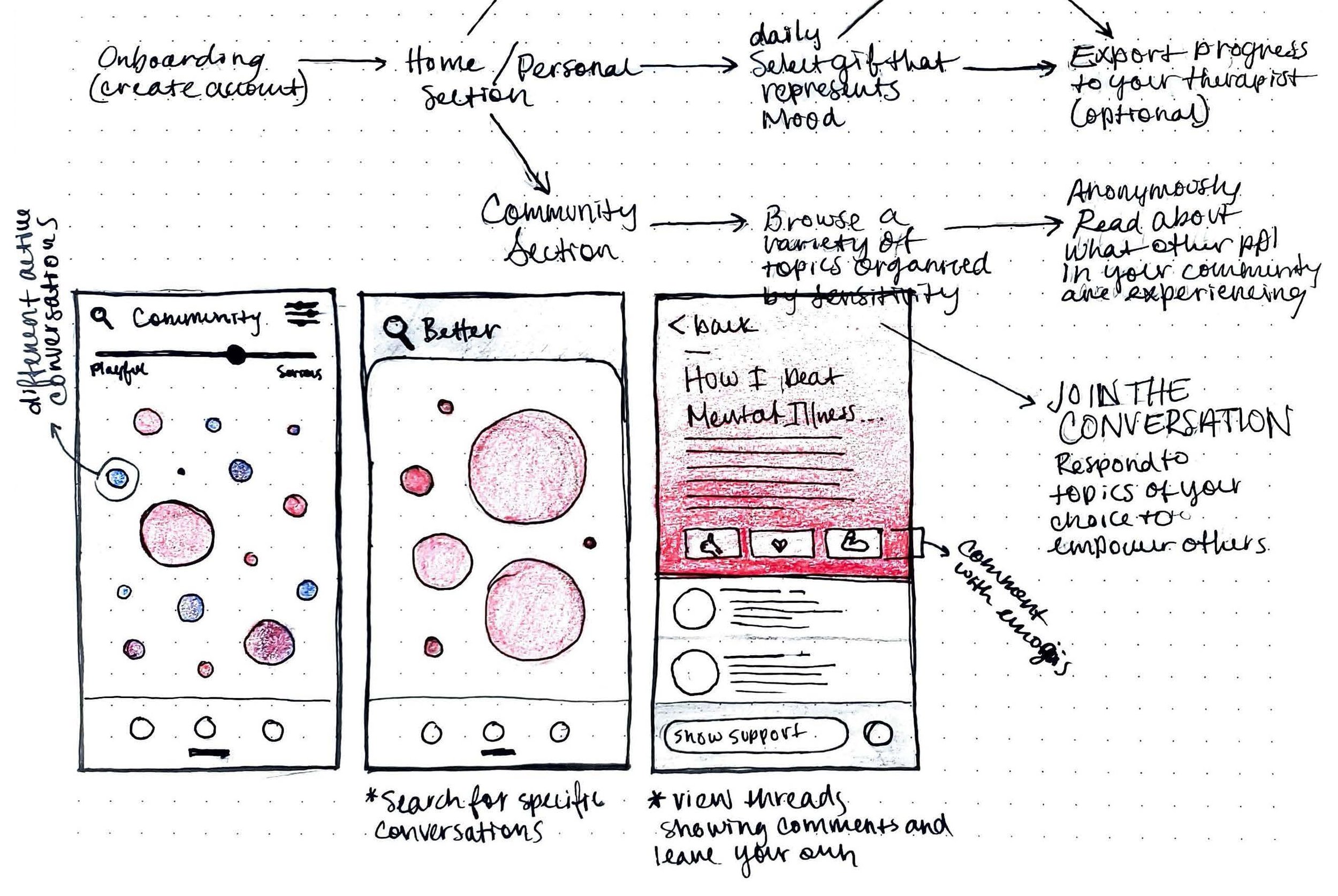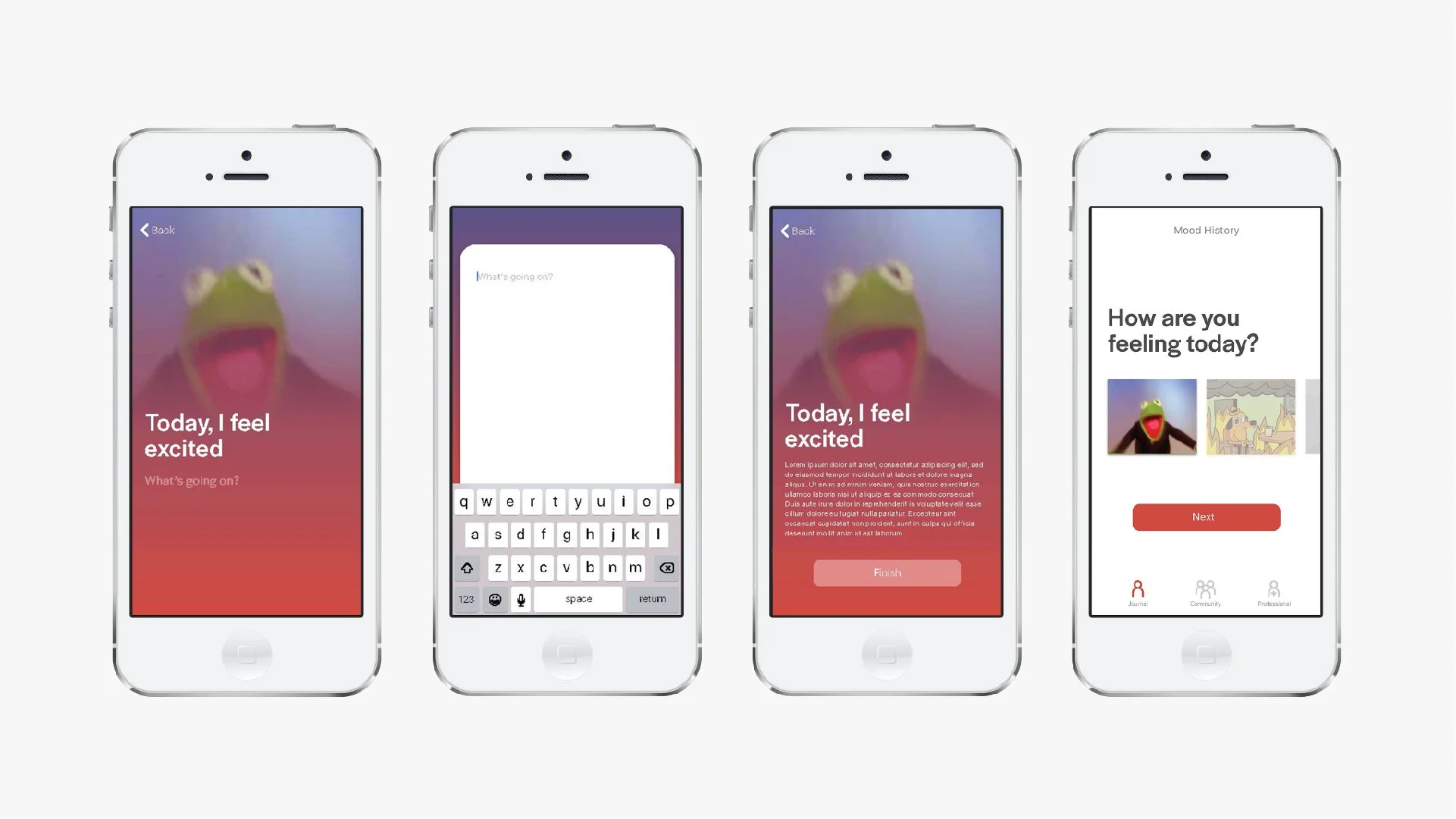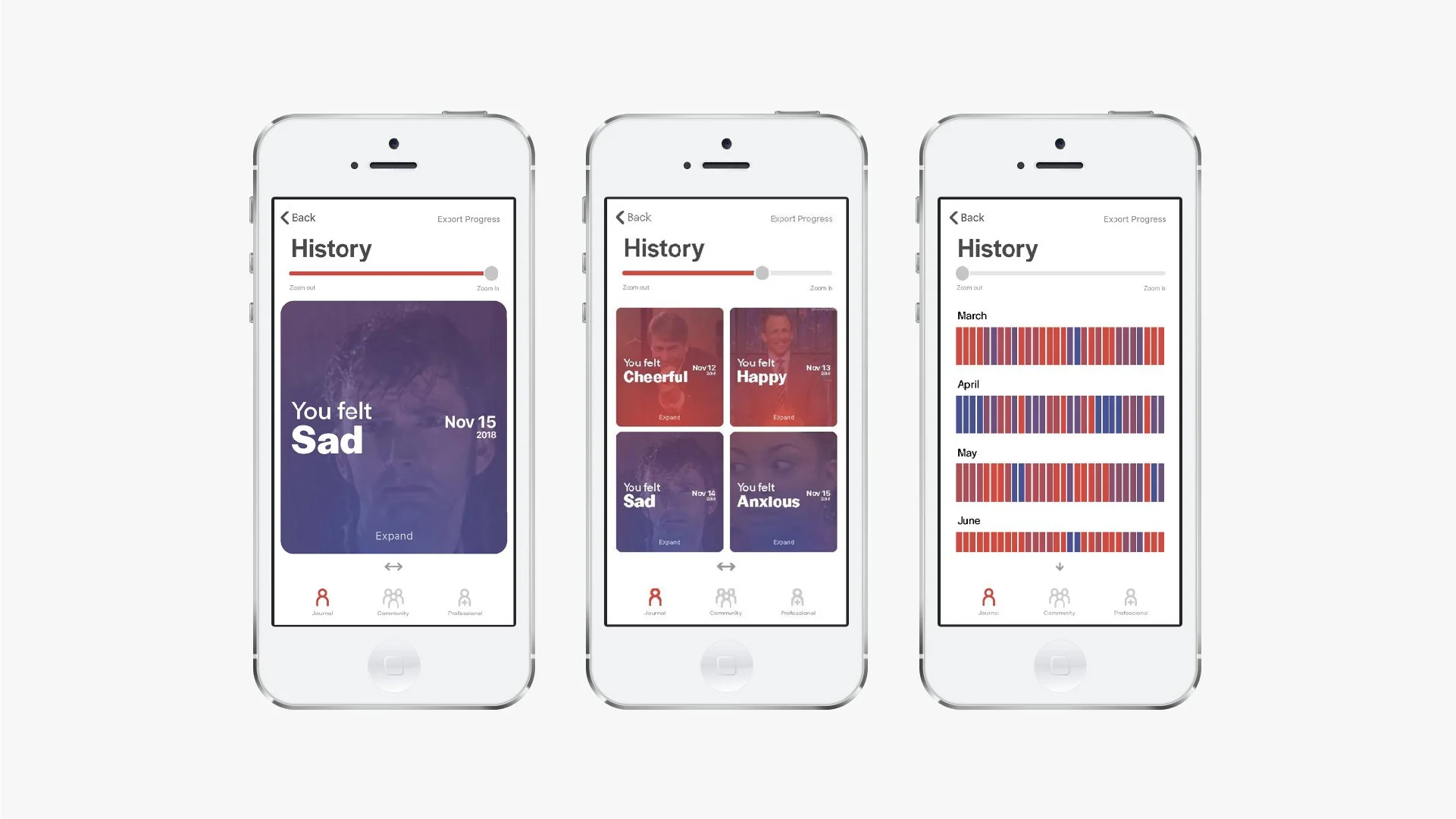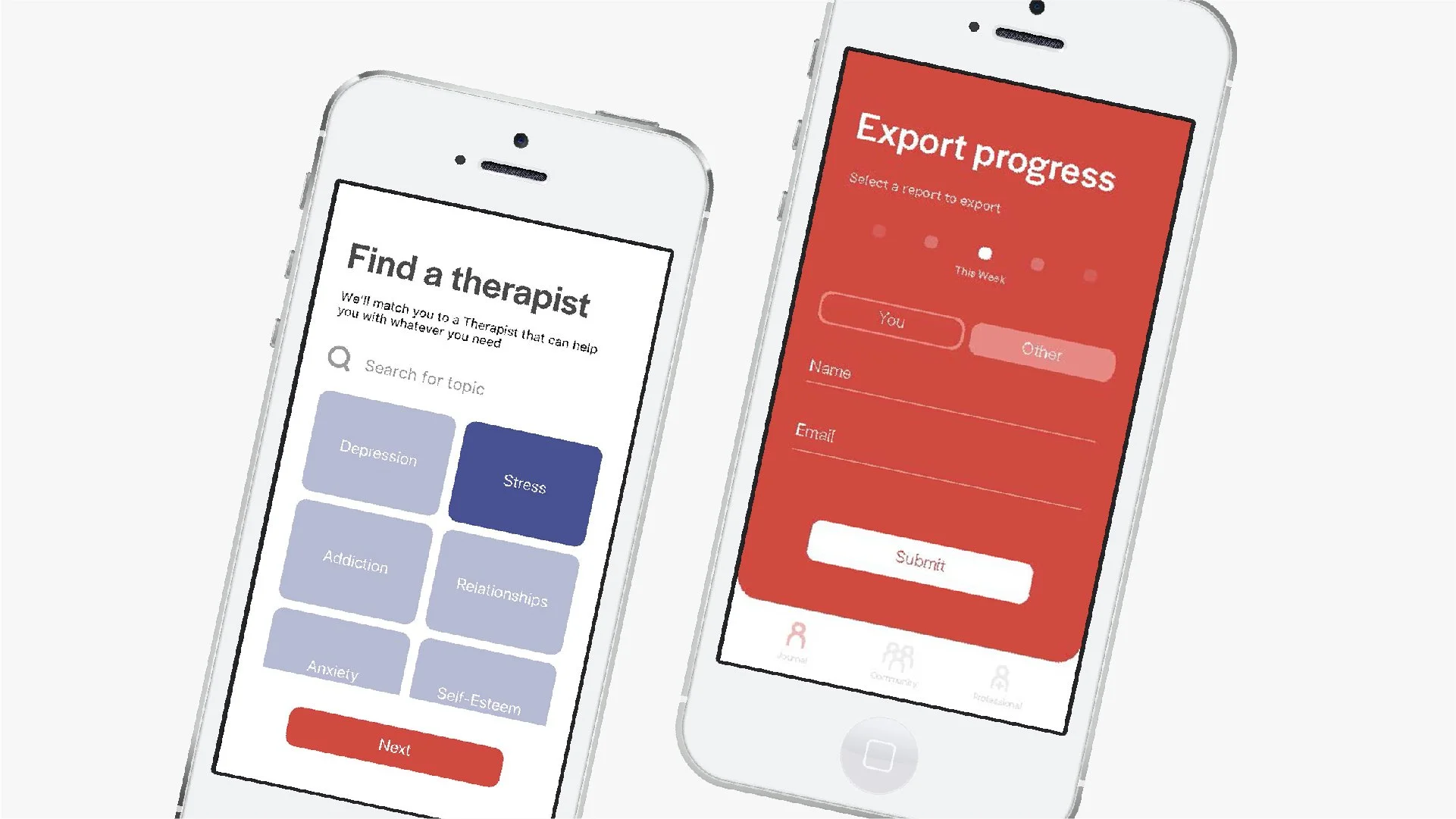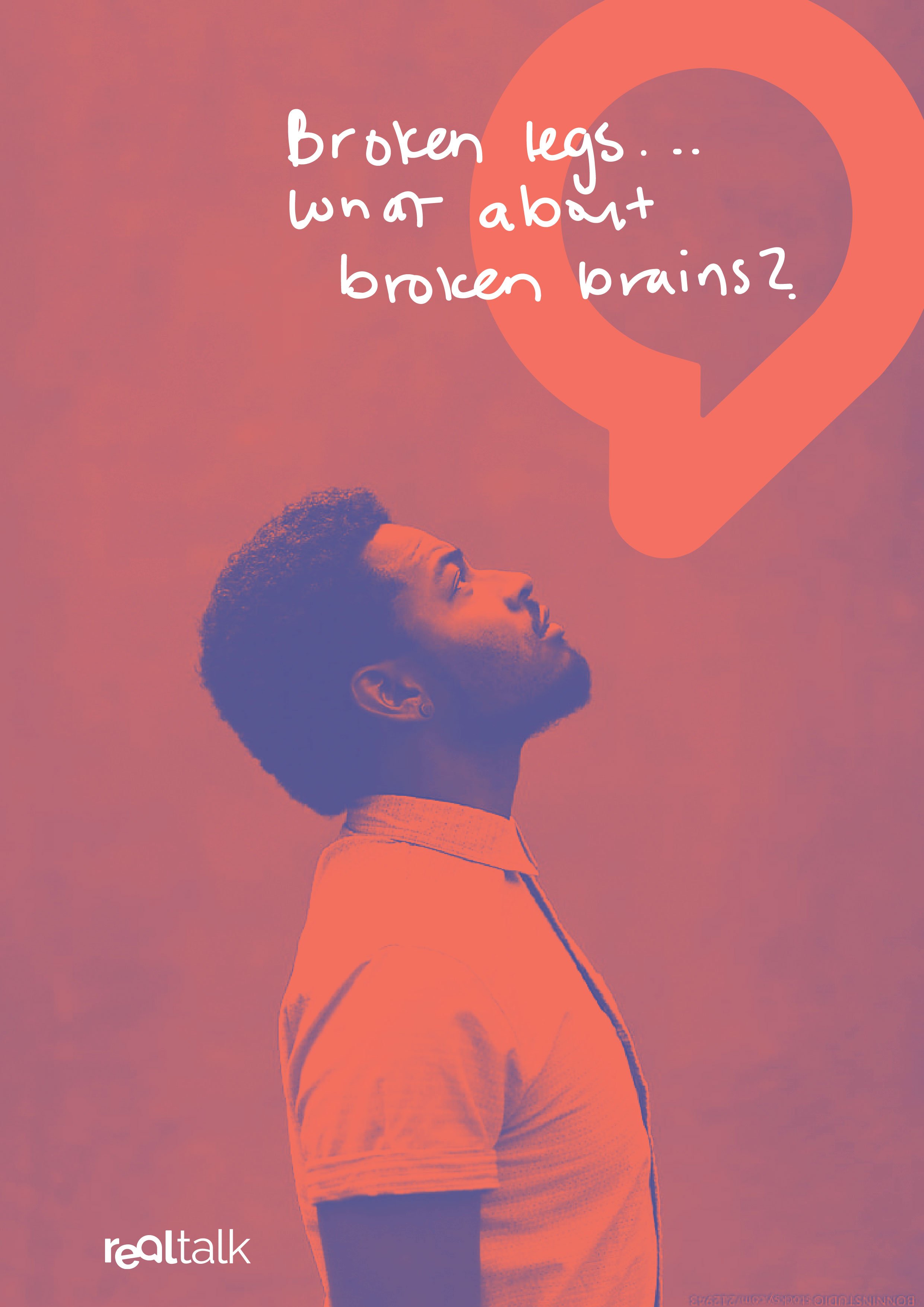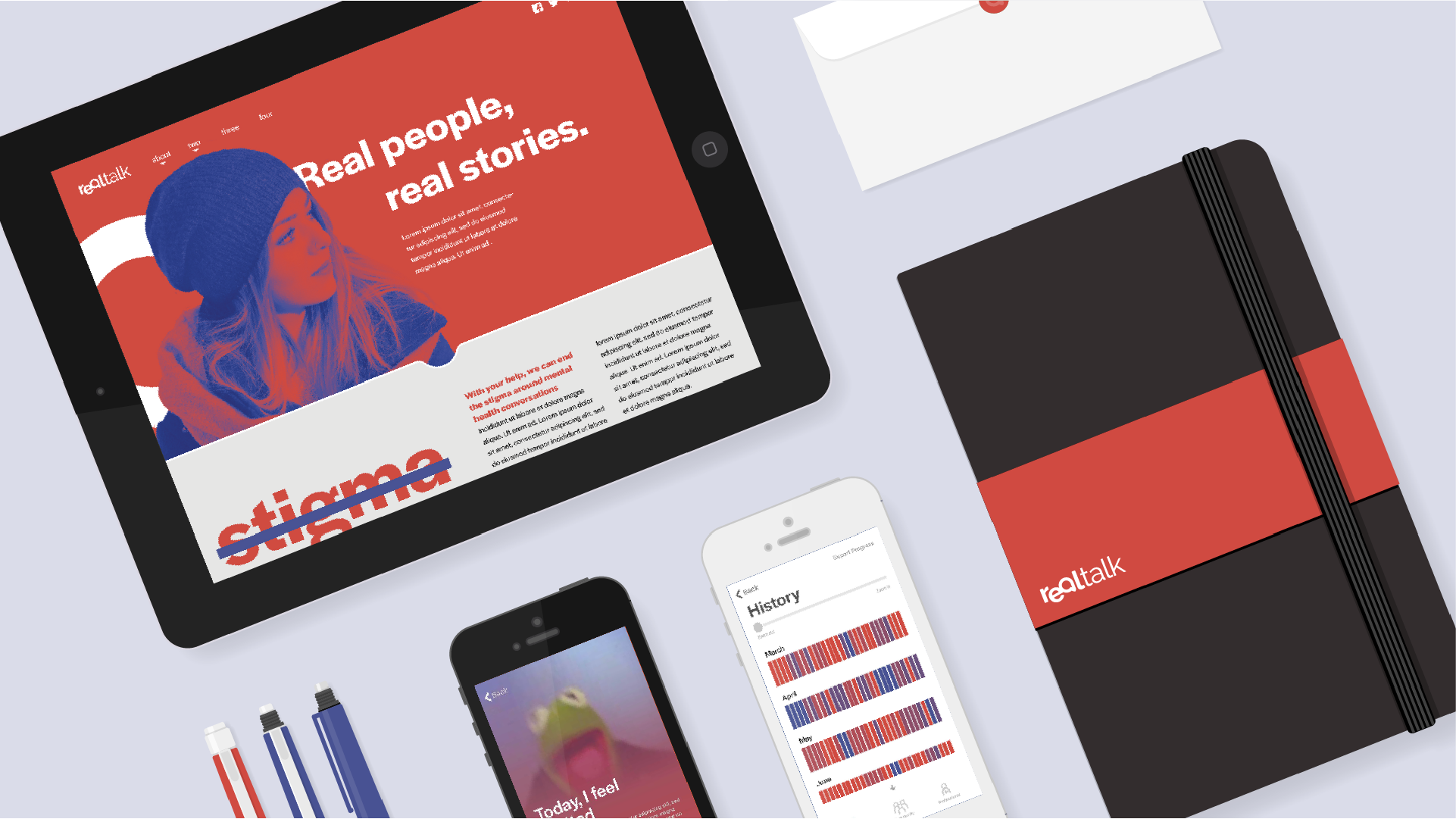
Realtalk
-
Mental health problems can be hard enough for someone to deal with, but it can be even harder if those around you don't understand or don't think mental health is important. Many jobs, schools, and social clubs will discriminate against individuals with mental health issues, isolating them and prohibiting them from living fulfilling lives. The lack of adequate resources for those who suffer from mental health issues has left them feeling alone and overwhelmed by what they are struggling with.
-
We began by researching mental health, the stigma around it, how to challenge that stigma, perceived barriers to seeking help, and what can actually make a difference. Research shows that the best way to challenge these stereotypes is through firsthand contact with people with experience of mental health problems. We compiled the information we found in a literature review. Using our research, analysis of current resources, and our own experiences battling with mental health as our foundation, we developed an organization, Realtalk, that ignites conversations about mental health while providing users and outlet to speak about their experience.
-
Inspired by the need for a better, less overwhelming resource, we created Realtalk to reduce the stigma around mental health and wellness by encouraging connection among young adults and their support systems to help users deal with everyday struggles. Through our organization young adults will have a better understanding of mental health and lessened feeling of isolation through the connections they are able to build through Realtalk.
Branding, Service Design, Interaction Design, User Research, Collaboration
Research
-
Mental health is a person's condition with regards to their psychological and emotional well-being. Mental health conditions are common among teens and young adults. One in five teems and young adults live with a mental health condition. For some, experiencing the first signs can be scary and confusing, however, discussing what you are going through with others is an important first step to getting help. Researchers are only starting to understand why these conditions develop, however, you have the power to take action to improve your mental health. Some of the factors that affect mental health include, physical activity, smoking, diet, relaxation techniques, relationships, and many more. It is understandable how so many people struggle with maintaining their mental health.
https://www.psyscologytoday.com/us/blog/when-your-adult-child-breaks-your-heart/201410/9-lifestyle-factors-can-affect-your-mental
-
The definition of a stigma is, "a mark of disgrace associated with a particular circumstance, quality, or person." Mental health problems can be hard for anyone to cope with but it can become worse by having to deal with stigma and discrimination from others. So many people do not seek support due to the stigma they expect to face and the self stigma of feeling a burden. No one should ever be made to feel ashamed or embarrassed to tell anyone that they experience mental health problems. The more we talk about mental health and the more we're open about it, the smaller and smaller the stigma will be. Before we know it, the stigma will be normal for people to talk about mental health and illness making it easier for them to get the help they need.
https://www.psyscologytoday.com/us/blog/when-your-adult-child-breaks-your-heart/201410/9-lifestyle-factors-can-affect-your-mental
-
Adolescents and young adults frequently experience mental disorders, yet tend not to seek help. Studies show negative attitudes towards seeking help, as well as, concerns about cost, transportation or inconvenience, confidentiality, other people finding out, feeling like they can handle the problem on their own are all barriers to young people seeking help for mental health conditions. The results of the study show there is stigma and embarrassment around seeking help emerged in both the qualitative and quantitative studies as the most prominent barrier preventing people from seeking help. Upon learning about the barriers that prevent people from seeking help, we were able to better understand how we can design for people experiencing those barriers.
https://bmcpsychiatry.biomedcentral.com/articles/10.1186/1471-244X-10-113
-
Together as individuals we need to treat someone who struggles with mental health with respect, dignity, and as an equal. Often, the people who act inappropriately may not mean to cause harm and are ignorant of the negative impact of their actions. Our organization's mission is to inform these people of the effect of their actions and words, as well as, help them better understand mental health. This behavior is increasingly not tolerated in society as awareness continues to spread, however, phrases and words like, "pull yourself together," or "there are people worse off than you," can hurt and negatively affect those battling mental health issues.
https://www.seemscotland.org/stigma-discrimination/experiencing-stigma-and-discrimination-and-how-to-challenge-it/
-
Only about one-third of people with mental health difficulties obtain help. While there are many reasons for this, practical factors such as availability of health professionals and travel may limit access to mental health care. While technology is not always a replacement for face-to-face treatment for mental health difficulties, it can offer increased choices and flexibility. It may also motivate some people to take the first step towards seeking help. Some people are uncomfortable opening up to a health professional in person and prefer the anonymity of online assistance. There is strong evidence that psychological therapy, particularly cognitive behavior therapy, can be effectively delivered online to treat a range of mental health difficulties. In some research trials, online therapy has been found to be as effective in reducing symptoms as therapy in-person therapy sessions. Evidence is particularly strong that anxiety, stress, and depression can be treated online.
https://www.medicaldaily.com/mental-health-online-therapy-stress-and-anxiety-therapist-386757
Realtalk App
The Realtalk app provides users with a safe place to connect with others about shared traumas. The app lets users keep track of their daily emotions by selecting from a series of gifs that represent how they are feeling at the time. Daily submissions are recorded, allowing users to see patterns and gain a better understanding of their emotions.
Realtalk Website
The Realtalk website provides people with a way to learn more about our organization and how we can best support them. Visitors can explore the different services we offer such as a directory of therapists, involvement opportunities, information, and events for the cause.
Tool For Clinicians
Realtalk provides Clinicians with a seamless way to schedule appointments and monitor their patient’s progress. Therapists can choose to support our cause and expand their practice with our secure service.
Interactive Exhibit
The Realtalk interactive exhibit will display a prompt to encourage conversations surrounding mental health. The exhibit will anonymously show responses providing a safe environment for users to interact and express what they are going through.
Responses
We chose to implement smart pens which digitally reproduces the user's handwriting onto the exterior of the exhibit with a slight delay to help with anonymity.

